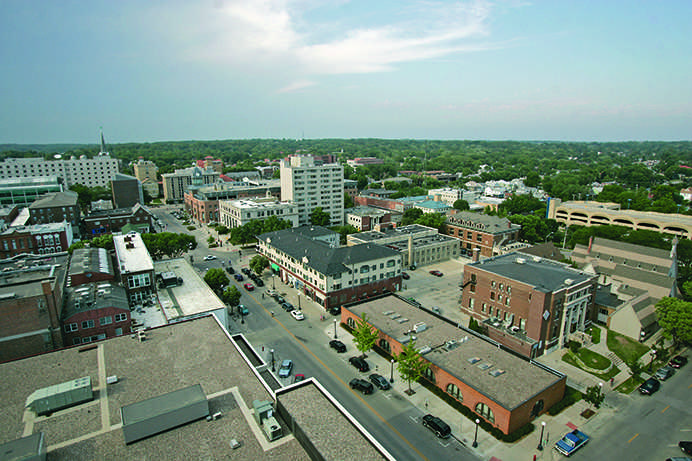Mayor Matt Hayek’s recent Op-Ed (“Preserve Iowa City’s Progress”) is curious for a variety of reasons. He cites a series of “progressive” accomplishments in Iowa City, for which he and his current council majority can claim only partial credit at best. Indeed, in some areas (affordable housing and police-community relations, for instance) the councilors dragged their feet when others took the initiative. Then he pivots, from what purports to be an upbeat assessment of a vibrant, progressive Iowa City, to levy a mean-spirited attack on Jim Throgmorton and an unnamed “slate” of candidates who, he argues, if elected would undermine all the good that has been accomplished. This is a very strange, Jekyll and Hyde intervention in the current council campaign by a retiring councilor/mayor. It does him no credit. But maybe it is not so strange.
Community elites, who assert a natural right to govern in cities, have a long history — not just in Iowa City — of claiming to act for the community as a whole on the basis of a nonpartisan interest. They characterize their opponents as partisans who have parochial concerns and who organize themselves into “slates” to pursue those interests. Such opponents do things, to quote Hayek, like undermine a proper “balance between investment in our future and adherence to our values.” (Whose values?) And they seek to “return to the anti-growth, micromanaging city hall of eras past.”
What goes unspoken and is largely invisible in this diatribe is the fact that council majorities in Iowa City, at least since the early 1980s, have been composed of “slates” that are quietly recruited and supported by developers, real-estate interests, and the Chamber of Commerce to ensure a development-friendly environment. They adhere to an agenda that is pro-growth, anti-tax, and anti-regulation of business. Because they have the resources to pour into council elections and because turnouts in this heavily Democratic city are historically low in municipal elections, they have pretty much had their way. The members of their slates are touted as “individuals,” “independent thinkers,” who understand that “balance is essential.”
Hayek is as much in the hip pocket of local developers and the Chamber as any of the members of his anointed slate or those that have come before. He simply obfuscates this political reality in a rhetoric that professes only an interest in “balance” and the wellbeing of the whole community.
We have an at-large system of electing a City Council (all councilors are voted on by all city voters), and we only indirectly elect a mayor (Hayek, like his predecessors, was chosen by his fellow councilors). The vast majority of citizens — working people, ethnic, and racial minorities, and real progressives — find themselves at a disadvantage as candidates and as voters against the resources that community elites can mobilize in city-wide elections. We need new, genuinely independent voices on the council, representing these voters and not beholden to developers and the Chamber. That’s why I am supporting Jim Throgmorton, John Thomas, Rockne Cole, and Pauline Taylor. It is time to take our city back from the business elite and their “slate.”
Shelton Stromquist, emeritus professor of history, is completing a book on the City and Social Democracy.









